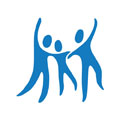 For science.
For science.
New technologies are quickly transforming the public health
landscape. For example, state environmental health tracking programs are using
spatial analysis and visualization methods to help predict people’s hazardous
exposure risks. Organizers are building online learning communities where
public health practitioners worldwide can swap best practices. National health officials use GIS
mapping to track a range of serious health conditions — such as diabetes, heart
disease and HIV — and use that information to deepen our understanding of the
social determinants of health. In the nation’s public health labs, workers use
state-of-the-art technology to rapidly detect, trace and contain disease
outbreaks. And in health departments across the country, workers have taken to
social media to educate and advocate within their local communities.
For action.
Support public health funding levels that allow the field's workers to leverage the latest technology on behalf of population health. For example, the ACA's Prevention and Public Health Fund provides millions of dollars each year to CDC's Epidemiology and Laboratory Capacity for Infectious Diseases agreement, which helps public health labs upgrade and maintain their equipment and technology and has been critical in scaling up laboratory response. Support and make time for workforce training efforts that teach public health practitioners how to use and deploy new technologies in their community health efforts. Embrace social media as a health improvement and advocacy tool.
For health.
Technology can be a potent public health tool.
For example, evaluations of the free Text4baby app, which provides personalized
text messaging services for pregnant women and new moms, finds that
participants have higher levels of knowledge about issues such as staying
healthy during pregnancy, safe newborn sleep and infant feeding. In addition, researchers found that Text4baby helped women, especially those without
health coverage, access health services. Evidence is also beginning to emerge on
the potential of health- and activity-tracking mobile apps in encouraging
healthy behavior changes. However, ethical concerns remain on how to balance
the benefits of new technologies and the massive amounts of data they generate with people's right to keep their health information private.
Healthy Communities
Violence Prevention
Rural Health
Technology and Public Health
Climate Change
Global Health